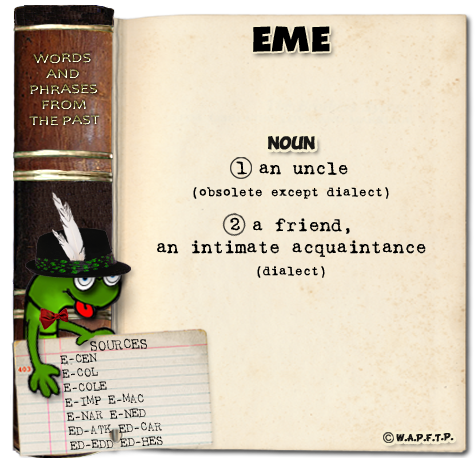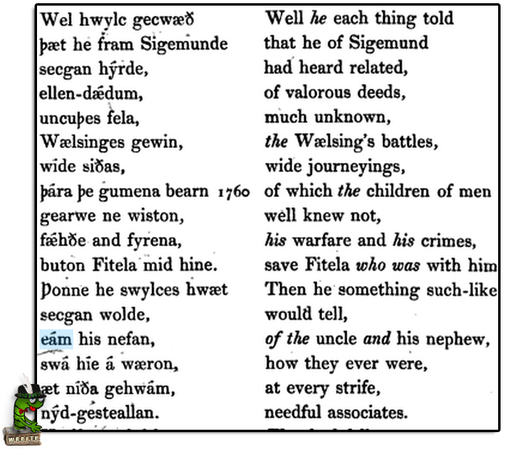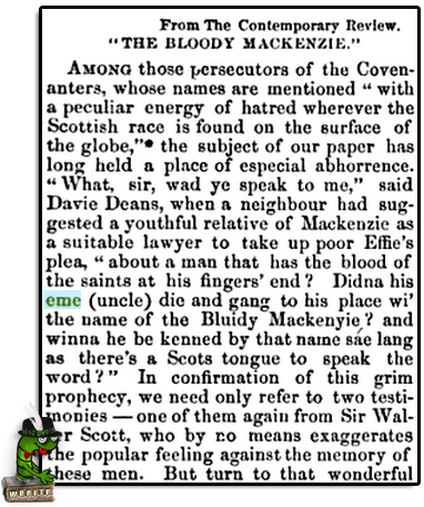|
also ÆEM, ÆM, EAM, EAME, EEM, EEME, EM, EMME, EOM, EYM (Scottish), HEAM, HEEM, HEM, YEM CLICK HERE FOR KEY TO SOURCES From: A New English Dictionary on Historical Principles, James Murray: Com. West Germanic: Old English éam = Old Frisian êm (Muddke Dutch oem, Dutch oom), Old High German ôheim (Middle High German ôheim, œheim, -hein, modern German oheim, ohm); if the word existed in Old Teutonic the type would be *auhaimo-z; presumed to be a compound or derivative of *awo-z = L. avus grandfather (of which the L. avunculus, uncle, is a diminutive) It is believed that the original sense of the West Germanic word was ‘mother's brother’ (cf. Latin avunculus); but in later use it is applied to a father's brother as well. Beowulf (dated between the 8th and the early 11th century); see below From: The Anglo-Saxon Poems of Beowulf: The Scôp Or Gleeman's Tale, and The Fight at Finnesburg Edited by Benjamin Thorpe. 1855 P. 59 From: Littell's The Living Age
Volume XXIII, 1871 By Eliakim Littell, Robert S. Littell The Bloody Mackenzie P. 97
0 Comments
Leave a Reply. |
Archives
September 2021
|





